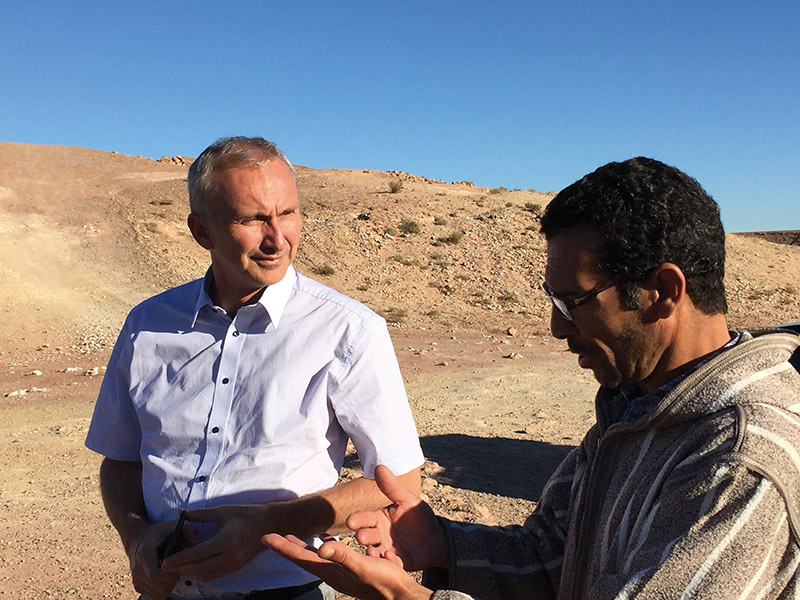Deadly mix: extreme weather, global warming, climate denial
Munich Re is not an environmentalist campaign organisation, of course. It is a profit-driven, private-sector corporation. Along with Deutsche Bank and Allianz, it is one of Germany’s most important financial-sector institutions. What sets it apart from many other private-sector companies is that it bears the costs of storm and flood damages, if those damages are insured. So while the car industry or the oil and coal industry have always had a business incentive to downplay the impacts of climate change, Munich Re was always keen on controlling climate risks. It not only accepted the science ealry on, it even spread the information.
The old debate on whether environmental protection and economic prosperity are compatible is distorted. The plain truth is that the answer has always hinged on which costs the economic models included and which costs they neglected. It makes sense to let a reinsurance company do the modelling as its understanding of costs is more comprehensive than an oil company’s.
Two decades after that Munich Re press release, climate change has not been stopped. The weather is still becoming less predictable, and extreme events are becoming ever more likely. Empirical experience fits this prediction, whether we are considering unusually strong monsoon rains in South Asia this year, the drought in East Africa or Hurricane Harvey in Texas. We are witnessing precisely the kind of calamity that, according to climate science, is becoming ever more probable.
It is true, of course: one cannot prove that any single event is caused by climate change. The climate is too complex for such narrow claims to make sense. Natural disasters have occurred throughout history, so any event we witness now might have happened without climate change. Nonetheless, we know that the events are becoming more likely and more devastating due to climate change.
It is deeply annoying to hear climate-change deniers now argue that the flooding of Houston is totally unrelated to climate change. For example, Ann Coulter, a conservative American media pundit tweeted: “I don’t believe Hurricane Harvey is God’s punishment for Houston electing a lesbian mayor. But that is more credible than ‘climate change’.” She clearly does not understand the science, but is proud to belittle empirical-data based models as even more worthless than crude religious fundamentalism.
Climate-change deniers’ arguments are flimsy. Some point out that there weren’t many hurricanes in the past ten years in the USA. Well, there weren’t many, but an unprecedented one hit New York and New Jersey, states that are normally safe from this kind of hazard. It was called Sandy and caused huge damages.
Some climate-change deniers say global warming is not happening because it isn’t always getting hotter. Well yes, there have been unusual cold spells like the polar vortex of 2014 in the USA. But that fits the prediction of weather becoming less predictable and more extreme. No climate scholar seriously claims that global warming is a linear, one-way trend.
It is telling, moreover, that, for three years in a row, Houston has now witnessed the kind of flooding that only has a likelihood of 1:500 in any given year in theory. It turns out that this year’s was actually not of the 1:500 kind, but more a 1:1000 version. These figures add up to three floods in the course of three years that would normally be expected in the course of 2000 years. On the other hand, the dynamics of hurricanes seem to be changing. Warmer sea water makes them become stronger, and warmer air means that clouds absorb more water. It is considered likely that climate change contributed about 30 % to Hurricane Harvey’s rainfall. People like Ann Coulter, of course, have no time for such details. Will the unprecedented force of Hurricane Irma impress them? I doubt it.
Lack of interest in real-world trends is compounding another issue that contributes to the damages extreme weather events are causing around the world. It is the lack of preparedness. Houston, for example, lacks proper urban planning and zoning. As a result, many houses were built in flood-prone areas. Obviously, Harvey would have caused serious damages even if the agglomeration had sprawled in a way that would have prevented 100-year floods from causing much damage. Yes, a 1000-year flood is worse. The point is that there would have been considerably less damage. Climate-change denial, of course, does not lead to better planning.
Compared with the USA, most developing countries are even less well prepared for disasters. Their infrastructure tends to be poorer, and informal urban growth tends to be even less well organised than inadqutely regulated urban growth. My colleague Aditi Roy Ghatak has spelled this out in a recent essay.
Asian or African suffering is, of course, just as important as American suffering. The USA gets more international attention than Bangladesh or Somalia, however. Many people have been arguing that this in unfair, which is true. But I think this bias in coverage does not primarily reflect ideas about whose suffering deserves compassion. It reflects power. The USA commands more resources, it has contributed more to climate change, and it is not as often struck by devastating isasters. Moreover, the USA is considered to be setting the example of where development is leading. Many people would love to migrate there, if they could. At the moment, however, Houston does not look like the American Dream at all.















